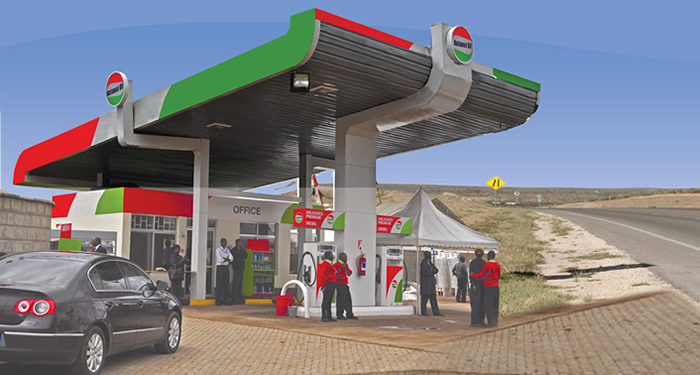The state-owned National Oil Corporation of Kenya entered its March “rescue” deal with French energy firm RUBiS Energy already in a condition that the Auditor General regarded as terminal.
By the end of the 2023/24 financial year, National Oil was in technical insolvency, as liabilities were KSh 11.6 billion higher than its assets.The company’s accumulated losses had swelled up to KSh 8.3 billion and had defaulted on a KSh 6.54 billion loan, which carried an additional KSh 2.43 billion in penalty interest.National Oil had reported a KSh 2.23 billion loss before tax for the year, missed its revenue target by more than KSh 90 billion, and failed to maintain strategic fuel reserves.
In March this year, a Cabinet-approved plan saw the government split National Oil into three subsidiaries under a holding company, ceding control of 99 fuel stations and other downstream operations to RUBiS.
The French firm agreed to inject KSh 3 billion in working capital and KSh 3 billion to revamp the outlets, in exchange for 30% of profits from fuel sales. The state retained ownership of upstream and strategic stock holding units.
The Accounting Black Holes
However, behind the transaction lies a corporation rotting from within. National Oil’s books list fuel stock worth KSh 245.48 million as of June 2024, but the figure is tangled up with an accounting ghost from 2016. That year, the company pulled petroleum products worth KSh 1.49 billion out of its active inventory under a board order, effectively sidelining them from sale.
The stock was supposed to be written off with Treasury approval, but the approval never came. Eight years later, the entry still sits in the accounts, clouding the true value of usable fuel and leaving auditors unable to verify whether the reported inventory bears any relation to reality.
The Auditor General also points out that National Oil recorded in its ledger obligations worth KSh 132 million payable to the State Department of Petroleum. However, the Department itself had no record of it and the audit could not confirm the validity of the corporation’s payables.
National Oil’s audit also raised concern that the value of ten parcels of freehold land on National Oil’s books plunged by 43%, erasing hundreds of millions of shillings in a single stroke. The company offered no detailed revaluation report or market evidence to explain the markdown, leaving auditors to question whether the assets had truly lost that much worth or if the write-down was simply booked without basis.
In addition to that, a stalled bid by National Oil to roll out the Mwananchi LPG project has left 88,248 defective cooking gas cylinders, valued at KSh 155.8 million, gathering dust in storage. Meanwhile National Oil’s hunt for crude in Block 14T has stretched into its thirteenth year, nearly tripling the three-year exploration window in its production-sharing contract, without yielding a single drop of commercial output.
The audit also finds that 80% of receivables had been outstanding for more than a year, totalling KSh 533 million. National Oil was faulted for being ineffective in recovering these balances due to weak corporate governance. Moreover, the corporation’s IT systems were unsupported and insecure, with KSh 57 million owed to vendors for upgrades.
The March handover to RUBiS was sold as a competitive rebirth, but the audit shows that recovery for a state agency without a strategic plan, a financial policy framework, and a sense of the long view is a steep mountain.
What remains of National Oil, outside the RUBiS deal, is an administrative husk. A moribund company presiding over losses, empty depots, and a financial circus.


